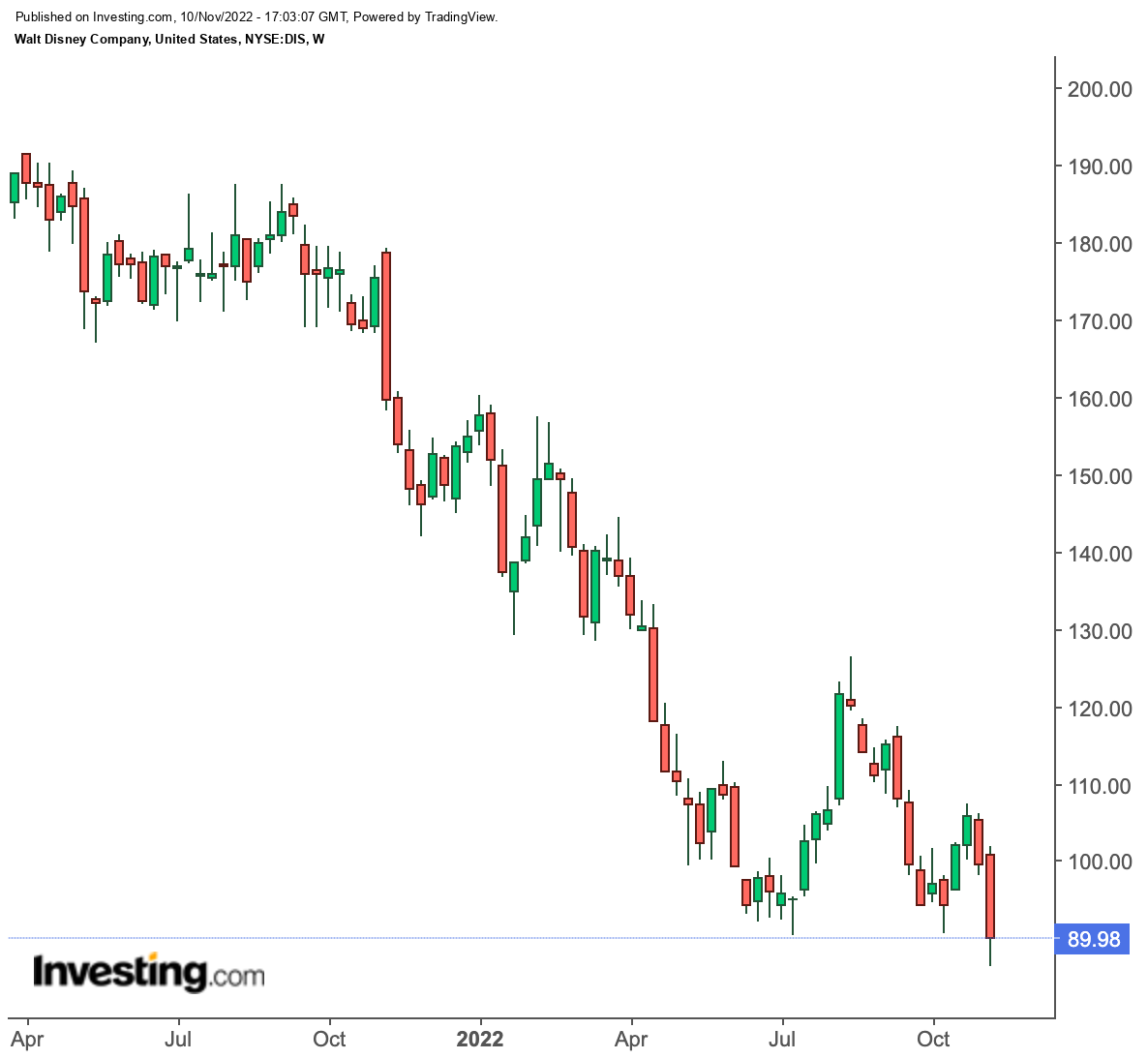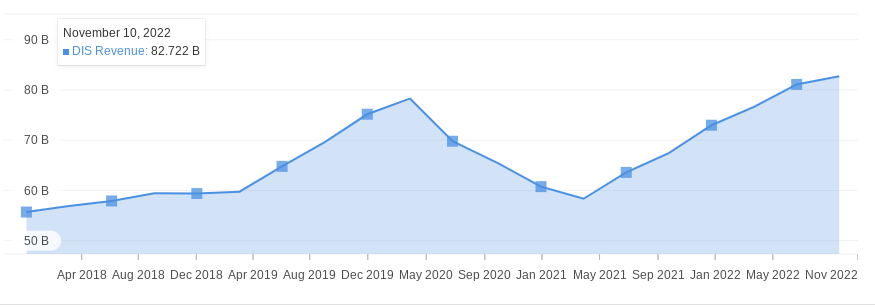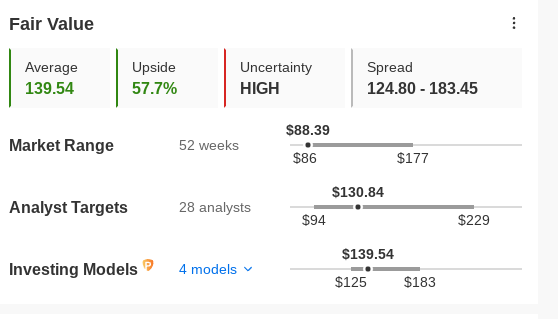- After losing 42% this year, Disney is trading where it was during the depth of the pandemic crisis
- Disney is on a solid path to making its streaming business profitable
- The giant’s recent weakness offers an attractive buying opportunity for long-term investors
Global entertainment behemoth Walt Disney Company (NYSE:DIS) plunged 13% yesterday as investors digested a worse-than-expected earnings report on the back of a struggling direct-to-consumer division. It was the largest one-day slide since September 2001.
Losses at the division, which is the lynchpin of Disney’s growth strategy, more than doubled to $1.47 billion in its fiscal fourth quarter due to higher programming expenses and the cost of global expansion.
The sharp drop in Disney's shares wiped more than $20B in market value, pushing the stock where it traded during the pandemic crisis. While the company is rebounding by 3.6% today, year-to-date losses are still as high as 42%.

Solid Path to Profitability
Does this extreme reaction open a buying opportunity for long-term investors? I believe it does. Disney, in my view, is on a solid path to making its streaming business profitable, and there are clear signs that it’s succeeding.
The division again beat expectations for streaming subscriber additions, signing up 12.1 million new customers at its Disney+ service alone for the fourth quarter. Total subscribers, including those for its Hulu and ESPN+ products, rose to almost 236M, competing for neck-to-neck with the industry leader Netflix (NASDAQ:NFLX) when it comes to subscriber numbers.
The plan to make streaming profitable in the next two years includes a combination of reducing costs, raising prices, and creating new ad-supported tiers that offer content at lower prices to consumers but also establish a new revenue stream. According to CEO Bob Chapek, the streaming business had reached peak losses in the quarter, and the business is still on track to reach profitability in fiscal 2024.
Disney Revenues Have Rebounded Strongly Since the Pandemic Slump
Another important point to note while investing in Disney is that the company’s legacy businesses are strongly recovering from the pandemic slump, and there is still a huge pent-up demand for its theme parks and other entertainment assets.
Profit at the Parks, Experiences, and Products division, including Disneyland, Walt Disney World, and four resorts in Europe and Asia, more than doubled to $1.51B due to higher attendance and increased guest spending. Management reiterated that park demand remains strong going forward with no signs of slowing consumer trends due to a weaker macro backdrop.

Source: InvestingPro
Due to Disney’s global franchise and the cash-generation power of its legacy businesses, InvestingPro’s models, which value companies based on P/E or P/S multiples or terminal values, predict more than 50% upside potential for Disney stock from its current level.
Source: InvestingPro
Some analysts also see value in DIS’s beaten-down stock, insisting that the company is poised to be a winner in the future of streaming. JPMorgan analyst Philip Cusick wrote in a Wednesday note:
“Our call on Disney has been that we will feel better about shares once consensus DTC OI losses catch up to our numbers — this seems much more likely after Tuesday’s call, and we like the stock into DTC improvements through F23,”
The firm reiterated its overweight rating but trimmed its price target to $135 from $145. Still, Cusick said the firm is “buying on weakness” in the stock.
UBS, which has a $122 piece target on DIS, said in a note to clients:
″While the macro environment presents challenges, we still view Disney as best positioned for the transition to a streaming future.”
Bottom Line
The post-earnings weakness in Disney stock suggests that investors are no longer keen to favor companies investing for growth. Their impatience makes sense, given the uncertain economic environment and the rush to exit growth trade.
But Disney, in my view, is a great stock to have in a long-term portfolio due to its massive global franchise and its fast-growing streaming business.
Disclosure: At the time of writing, the author is long on Disney stock. The views expressed in this article are solely the author’s opinion and should not be taken as investment advice.
